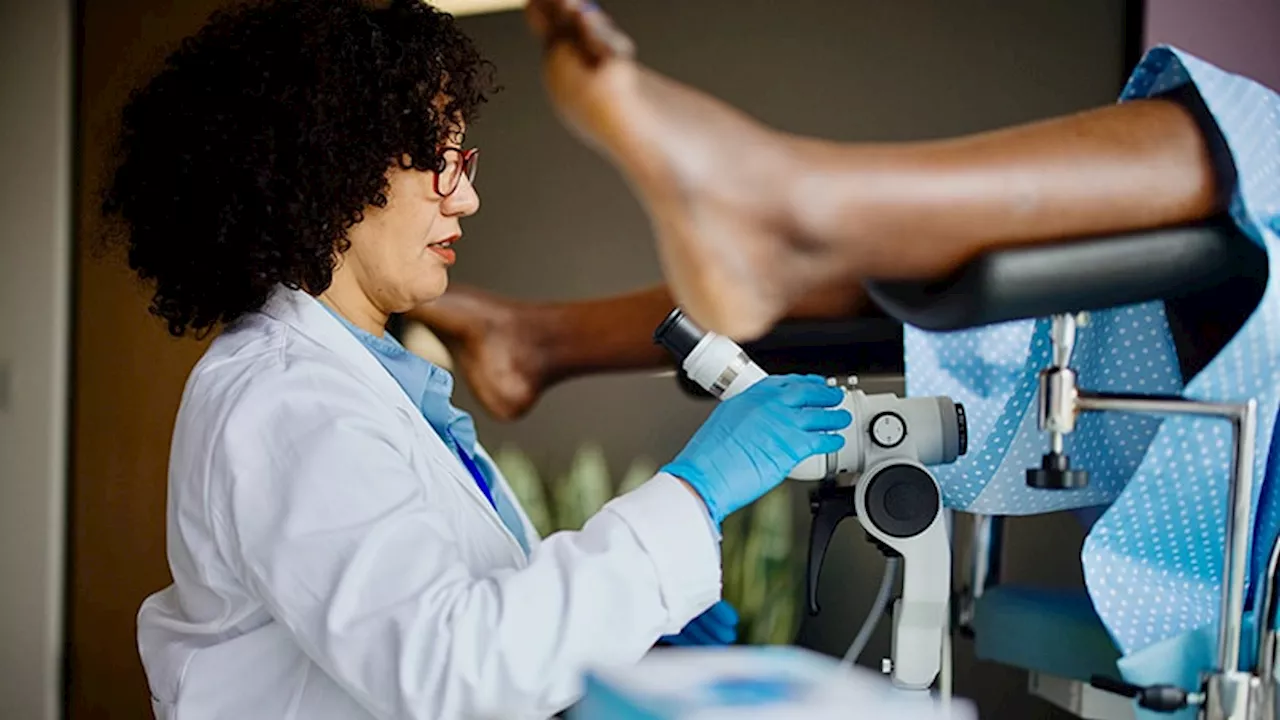This article explores the management of challenging cases of vulvar inflammatory dermatoses, focusing on the use of off-label systemic and topical therapies for conditions like lichen sclerosus and lichen planus. The article highlights the importance of diagnosis, the limitations of standard treatments, and the role of specialist referrals.
Early-stage inflammatory conditions of the vulva, particularly lichen sclerosus or lichen planus , can sometimes mimic conditions that don't cause scarring, such as allergic contact dermatitis. This makes diagnosis difficult before visible scarring or changes in the vulva's structure develop, according to Christina Kraus, MD, an assistant professor of dermatology at the University of California, Irvine.
These autoimmune inflammatory skin conditions primarily affect the genital area, including the vulva and the area around the anus. During a presentation at the 2025 ODAC Dermatology Conference, Dr. Kraus outlined strategies for managing challenging cases using off-label systemic agents and off-label topicals. While most patients with vulvar dermatoses respond well to high-potency topical corticosteroids, Dr. Kraus explained that for those who don't improve with standard treatments, can't tolerate topical steroids, or would benefit from additional therapy, systemic medications used for other autoimmune conditions can be effective. For patients who don't respond to topical treatments, systemic therapy becomes crucial for controlling inflammation and reducing the risk of complications that can lead to long-term functional impairment, such as severe scarring. Systemic therapies for vulvovaginal lichen planus, which often involves the mucous membranes and presents as itchy purple lesions, include systemic steroids, oral Janus kinase (JAK) inhibitors, cyclosporine, methotrexate, mycophenolate mofetil, hydroxychloroquine, interleukin-23 inhibitors, oral retinoids, apremilast, adalimumab, and intravenous immunoglobulin, among others. For patients with lichen sclerosus, which appears as itchy white patches on the vulva, maintenance therapy is essential to prevent scarring and reduce the risk of malignancy. Research on systemic therapy for lichen sclerosus includes many of the same agents as lichen planus, with the addition of dupilumab. Vulvovaginal lichen planus may overlap with lichen sclerosus and can occur alongside oral, cutaneous, or esophageal lichen planus. Neoplastic conditions like extramammary Paget disease, which often presents as a rash with itching, can resemble inflammatory vulvar dermatosis. Dr. Kraus emphasized the importance of tissue biopsy and further evaluations if patients suspected of having vulvar dermatitis don't respond to standard treatments. Similarly, unresponsive lesions in lichen sclerosus, such as papules, nodules, or hyperkeratotic areas, should raise suspicion for squamous cell carcinoma or its precursor lesion, differentiated vulvar intraepithelial neoplasia.
Vulvar Dermatoses Lichen Sclerosus Lichen Planus Systemic Therapy Off-Label Treatments Diagnosis Referral Guidelines
United States Latest News, United States Headlines
Similar News:You can also read news stories similar to this one that we have collected from other news sources.
 Vulvar and Vaginal Melanoma: A Rare but Important DiagnosisKatherine Tucker, MD, discusses the rarity of vaginal melanoma and the importance of raising awareness to improve early detection and treatment outcomes.
Vulvar and Vaginal Melanoma: A Rare but Important DiagnosisKatherine Tucker, MD, discusses the rarity of vaginal melanoma and the importance of raising awareness to improve early detection and treatment outcomes.
Read more »
 Managing Up to Multiple Bosses: Strategies for SuccessThis article provides advice on how to effectively manage multiple bosses, particularly when they lack communication. It explores common challenges and offers actionable strategies for navigating this complex situation.
Managing Up to Multiple Bosses: Strategies for SuccessThis article provides advice on how to effectively manage multiple bosses, particularly when they lack communication. It explores common challenges and offers actionable strategies for navigating this complex situation.
Read more »
 Prince Andrew suffers fresh blow as firm managing his private investments shuts downPrince Andrew has become increasingly isolated, with sources claiming that the disgraced royal 'barely goes out' and is 'not that welcome anywhere.'The Duke of York has been keeping a low profile at his Windsor residence, with his social circle reportedly dwindling.
Prince Andrew suffers fresh blow as firm managing his private investments shuts downPrince Andrew has become increasingly isolated, with sources claiming that the disgraced royal 'barely goes out' and is 'not that welcome anywhere.'The Duke of York has been keeping a low profile at his Windsor residence, with his social circle reportedly dwindling.
Read more »
 AI Assists in Detecting and Managing Ovarian TumorsResearchers at Karolinska Institute developed an AI program that demonstrates promising results in detecting and managing ovarian tumors. The AI reduces the need for expert referrals and minimizes misdiagnosis rates. Further research and clinical trials are planned to validate these findings and explore the broader applications of AI in healthcare.
AI Assists in Detecting and Managing Ovarian TumorsResearchers at Karolinska Institute developed an AI program that demonstrates promising results in detecting and managing ovarian tumors. The AI reduces the need for expert referrals and minimizes misdiagnosis rates. Further research and clinical trials are planned to validate these findings and explore the broader applications of AI in healthcare.
Read more »
 Managing Negative Emotions May Slow Mental AgingA new study links negative emotions to neurodegeneration and suggests that managing these emotions could protect brain health.
Managing Negative Emotions May Slow Mental AgingA new study links negative emotions to neurodegeneration and suggests that managing these emotions could protect brain health.
Read more »
 Strategies for Managing Talent Amid Uncertainty and CompetitionIf you’re a manager, you may need a new strategy to hire and retain top talent.
Strategies for Managing Talent Amid Uncertainty and CompetitionIf you’re a manager, you may need a new strategy to hire and retain top talent.
Read more »
